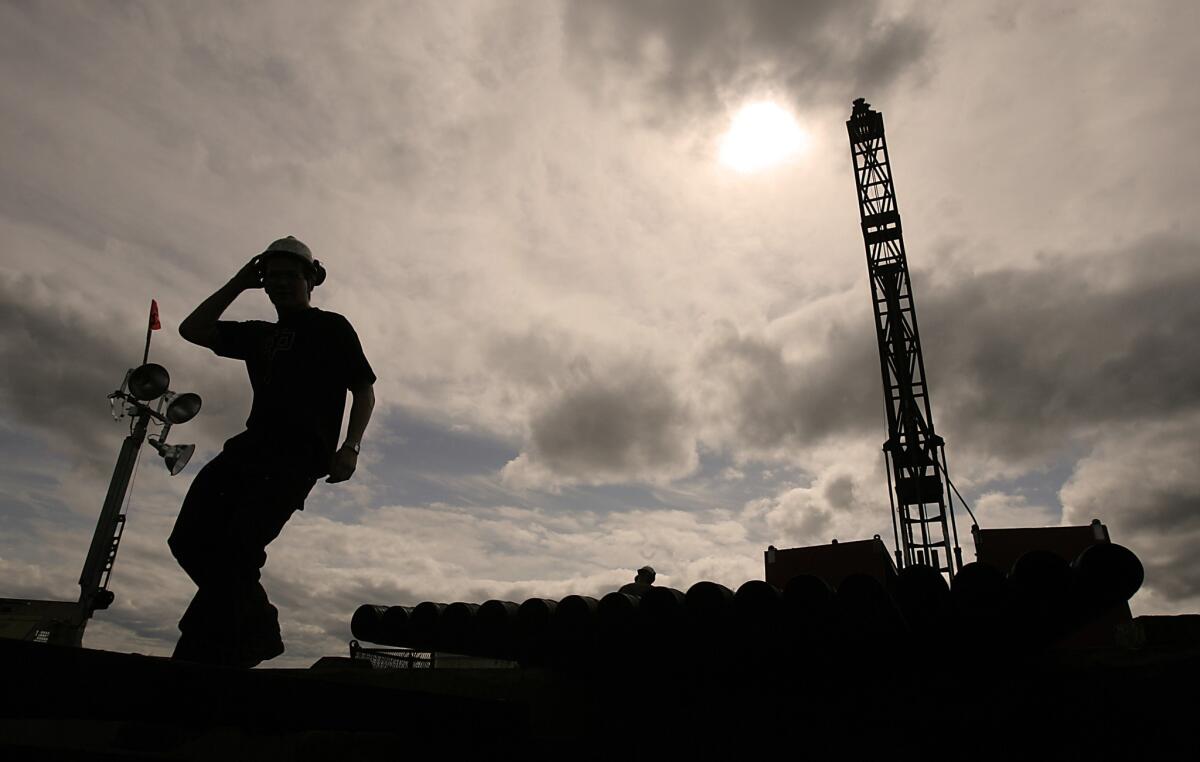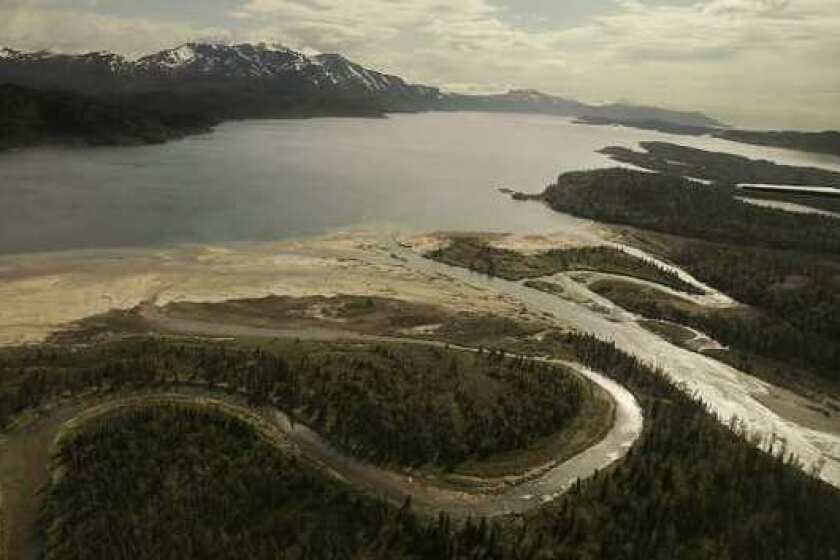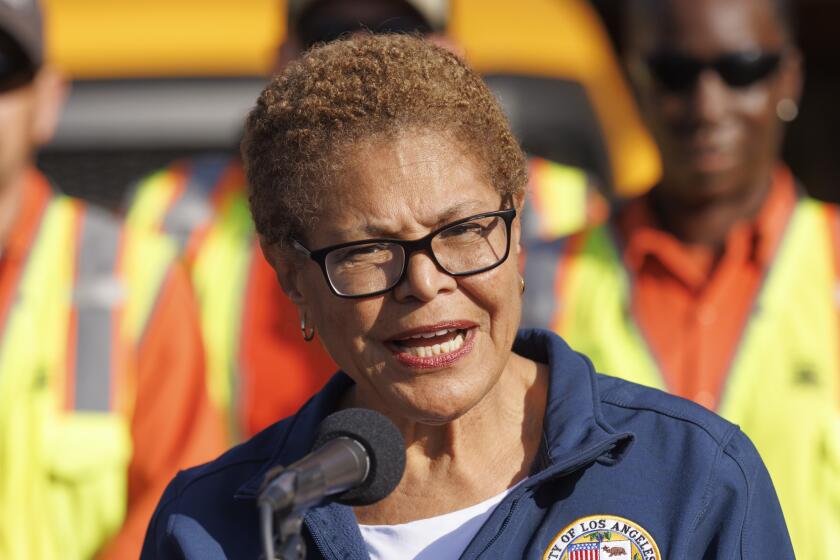Executive leaves Pebble Mine project amid recorded comment fallout

- Share via
JUNEAU, Alaska — The man helping lead efforts to develop a copper and gold mine near the headwaters of a major salmon fishery in Alaska has resigned following the release of recorded comments in which he “embellished” relationships with elected and regulatory officials, Northern Dynasty Minerals Ltd. said Wednesday.
Tom Collier served as CEO for the Pebble Limited Partnership, which is owned by Canada-based Northern Dynasty and is seeking a key federal permit for the proposed Pebble Mine in Alaska’s Bristol Bay region, which supports the world’s largest sockeye salmon fishery. Collier’s resignation is effective immediately, Pebble spokesperson Mike Heatwole said by email.
The resignation letter was not released. Heatwole called it “a private matter between employer and employee.”
John Shively, a former Pebble partnership CEO, will act as interim CEO, Northern Dynasty said. Efforts to reach Collier weren’t immediately successful Wednesday.
Collier and Ron Thiessen, Northern Dynasty’s president and CEO, were shown in recorded conversations released this week by a Washington-based group called the Environmental Investigation Agency. The recordings were made by individuals the group called “investigators” who had “expressed interest in investment opportunities related to the Pebble project.”
Thiessen, in a release Wednesday, slammed the group’s tactics as unethical. But he said it doesn’t excuse the comments that were made. He apologized “to all those who were hurt or offended, and all Alaskans.”
Pebble Mine, one of the most controversial development proposals in Alaska history, failed to pass scrutiny by the U.S. Army Corps of Engineers and qualify for a permit under the Clean Water Act. The critics included Donald Trump Jr.
Heatwole did not respond to questions about whether there were any calls within Northern Dynasty for Thiessen to resign.
Collier in the tapes suggested support from the state for the project and described himself and Alaska Gov. Mike Dunleavy as “pretty good friends.” He also suggested Alaska’s two U.S. senators, Lisa Murkowski and Daniel Sullivan, were “embarrassed” by statements they made raising concerns about the project and were now “in a corner being quiet.”
Murkowski, in a statement, said she did not misunderstand an announcement by the U.S. Army Corps of Engineers in August that said discharges at the mine site would cause “unavoidable adverse impacts to aquatic resources” and laid out levels of mitigation that would be required.
Murkowski and Sullivan, both Republicans, released statements the day of the August announcement that said the corps had determined the project could not be permitted as currently proposed and they agreed with that position.
“I am dead set on a high bar for large-scale resource development in the Bristol Bay watershed,” Murkowski said in a statement Wednesday. “The reality of this situation is the Pebble project has not met that bar and a permit cannot be issued to it.”
Sullivan said he “unequivocally” stands behind his August comments. “Any suggestion otherwise is either wishful thinking, a blatant mischaracterization, or a desperate attempt to secure funding for a mine that cannot move forward,” he said in a statement.
As for Dunleavy, also a Republican, his office said statements made in the released videos “misrepresent the Dunleavy administration’s role and stance on the Pebble Project.” His office said that resource development projects undergo “a rigorous environmental and permitting process” by federal agencies and that if a plan is submitted by Pebble to the state “it will also undergo a vigorous review process.”
The corps also took issue with what a spokesperson characterized as misrepresentations or inaccuracies in the recorded comments. The corps has yet to make a final permitting decision on the project, which has been a source of intense debate in Alaska for years.







